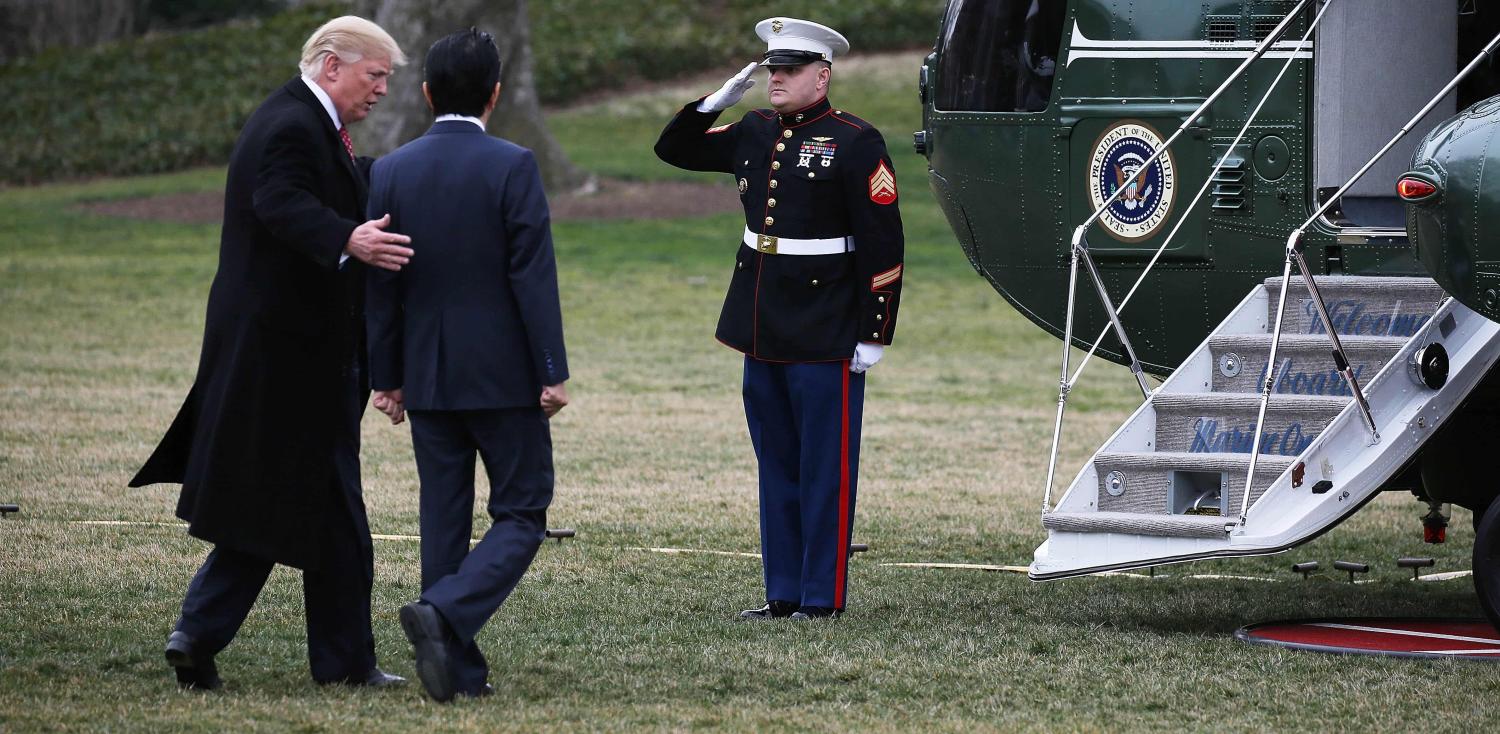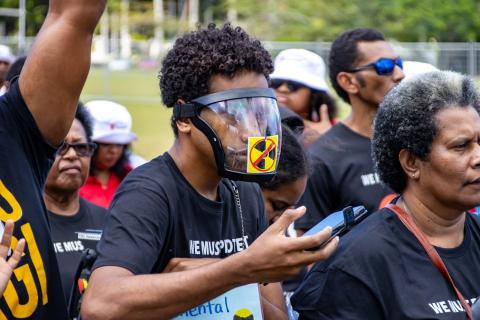Japanese Prime Minister Shinzo Abe has accomplished what no other foreign leaders has with US President Donald Trump. Not only has he already met him twice — once before and again just after the inauguration — but Trump appears to genuinely like Abe.
Of course, the state of US-Japan relations is far from worry-free. On security policy, the Trump Administration — first Secretary of Defense James Mattis, followed by Trump himself — has affirmed that the Senkaku Islands are included in the US commitment to defend Japan under Article 5 of US-Japan Mutual Security Treaty. But there is a lingering concern that the Administration may use this as leverage vis-a-vis China, because it is seen as being willing to strike economic or other deals with Beijing at Japan's expense.
Although the President himself no longer talks about Japan having to pay the 'full cost' of US troops stationed in Japan (Secretary Mattis even praised Japan as 'a model of cost-sharing and burden-sharing' during his visit to Tokyo), issues such as the persistent deadlock on the relocation of Marine Corps Air Station in Futenma in Okinawa could re-ignite calls of 'if we are not wanted there, let's get out' in Washington, particularly in Congress.
On trade and economic policy, the concerns may be more acute. Trump has criticised Toyota and Japan’s 'currency manipulation' since becoming president, even shortly before his meeting with Abe. One of the major announcements after that 10 February meeting was the launch of a 'cross-sector' economic dialogue at the level of the vice president and vice prime minister. The Trump Administration, which has announced its withdrawal from Trans-Pacific Partnership (TPP), may see this dialogue as the first test-case of its bilateral approach to trade, so Japan can anticipate intense negotiations with Washington.
Above all, what must be uncomfortable for Japan is to face a United States - which it has looked up to over seven decades as the leader of the free, liberal, international order - that seems to have lost its moral orientation in foreign policy. In other words, the US under Trump is a sovereign state that first and foremost pursues its own national interests, only it is so much more powerful than the rest. From the TPP withdrawal to the worldwide reaction to the so-called 'Muslim ban' travel restrictions, the world is already feeling the repercussions.
What sets Abe apart from other world leaders is the choice he made in responding to this drastic change. Rather than standing on the sidelines to be just another Trump critic, he decided to engage Trump and his advisers proactively.
Instead of waiting to respond to Trump's criticisms against Japan, Abe sought to meet Trump shortly after he was elected, gaining a golden opportunity to try to rectify misperceptions Trump may have had about Japan and Washington’s relationship with Tokyo. When other world leaders (with the possible exception of British Prime Minister Theresa May) hesitated to engage Trump after the inauguration, Abe sought the earliest opportunity to visit him in the Oval Office, bringing along concrete numbers to demonstrate to Trump how Japanese economic activity in the US has been mutually beneficial.
Of course, there are concerns about Abe’s approach to Trump. After all, Trump is highly divisive political figure, and his 'America First' approach appears to place less emphasis on the international values and norms that the US has helped to create to support the international liberal order since the end of World War II. This goes directly against one of the core principles of Abe’s global diplomacy which, he has consistently insisted, is anchored in international norms and universal values such as freedom, democracy, respect for basic human rights, and rule of law. Given the criticism against Trump that has swirled both in and outside the US since Trump announced he was running for president, Abe’s critics questions his eagerness to align himself so closely to Trump.
However, from Abe’s perspective, trying to engage Trump makes sense for Abe’s own foreign and security priorities. So many of Abe's foreign and security policy goals rely on strong US-Japan relations that it is critically important for Abe to do his utmost to make sure that the US under President Trump will remain engaged in world affairs, demonstrating its continued commitment to global peace and security. In Abe’s book, therefore, proactive engagement with the Trump Administration is a pragmatic move to protect Japan’s national interest. Whether his efforts pay off is yet to be seen.

